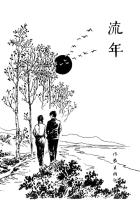[127] May laws -- four laws on creed adopted on Bismarck's initiative in May 1873. These laws established rigid state control over the Catholic Church and were the culmination of Bismarck's so-called drive for culture from 1872 to 1875, which was directed against the Catholic clergy as the mainstay of the "Centre" party, representing the interests of the separatists in South and South-western Germany. Police persecution met with desperate resistance by Catholics and brought them the halo of martyrdom. From the late 1870s, in order to unite all the reactionary forces against the working-class movement, Bismarck's government was compelled first to relax and then to repeal almost all the anti-Catholic laws.
[128] The Magic Flute -- a Mozart opera with a libretto by Emanuel Schikaneder. Composed and performed in 1791, it mirrored Masonic ideas; both the author of the libretto and Mozart himself having been Masons.
[129] Referendary -- Germany a junior official, chiefly a lawyer trained at court or in a state office.
ENGELS' NOTES [*1] It is much easier, along with the unthinking mob à la Karl Vogt, to assail the old philosophy of nature than to appreciate its historical significance. It contains a great deal of nonsense and fantasy but not more than the unphilosophical theories of the empirical natural scientists contemporary with that philosophy, and that there was also in it much that was sensible and rational began to be perceived after the theory of evolution became widespread. Haeckel was therefore fully justified in recognising the merits of Treviranus and Oken. In his primordial slime and primordial vesicle Oken put forward as a biological postulate what was in fact subsequently discovered as protoplasm and cell. As far as Hegel is specifically concerned, he is in many respects head and shoulders above his empiricist contemporaries, who thought that they had explained all unexplained phenomena when they had endowed them with some force or power -- the force of gravity, the power of buoyancy, the power of electrical contact, etc. -- or where this would not do, with some unknown substance: the substance of light, of heat, of electricity, etc. The imaginary substances have now been pretty well discarded, but the power humbug against which Hegel fought still pops up gaily, for example, as late as 1869 in Helmholtz's Innsbruck lecture (Helmholtz, Populäre Vorlesungen , Issue II, 1871, p. 190). In contrast to the deification of Newton which was handed down from the French of the eighteenth century, and the English heaping of honours and wealth on Newton, Hegel brought out the fact that Kepler, whom Germany allowed to starve, was the real founder of the modern mechanics of the celestial bodies, and that the Newtonian law of gravitation was already contained in all three of Kepler's laws, in the third law even explicitly. What Hegel proves by a few simple equations in his Naturphilosophie , § 270 and Addenda (Hegel's Werke , 1842, Vol. 7, pp. 98 and 113 to 115), appears again as the outcome of the most recent mathematical mechanics in Gustav Kirchhoff's Vorlesungen uber mathematische Physik , 2nd ea., Leipzig, 1877, p.
10 and in essentially the same simple mathematical form as had first been developed by Hegel. The natural philosophers stand in the same relation to consciously dialectical natural science as the utopians to modern communism.
[*2] Since I wrote the above it would seem already to have been confirmed. According to the latest researches carried out with more exact apparatus by Mendeleyev and Boguski, all true gases show a variable relation between pressure and volume; the coefficient of expansion for hydrogen, at all the pressures so far applied, has been positive (that is, the diminution of volume was slower than the increase of pressure); in the case of atmospheric air and the other gases examined there is for each a zero point of pressure, so that with pressure below this point the coefficient is positive, and with pressure above this point their coefficient is negative. So Boyle's law, which has always hitherto been usable for practical purposes, will have to be supplemented by a whole series of special laws. (We also know now -- in 1885 -- that there are no "true" gases at all. They have all been reduced to a liquid form.) [46]
[*3] This derivation of the modern ideas of equality from the economic conditions of bourgeois society was first demonstrated by Marx in Capital .















